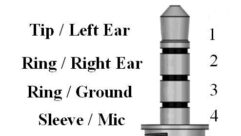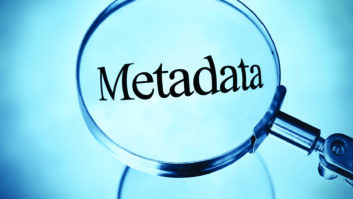Sample and Hold: Radio in Time of Crisis
Apr 1, 2011 1:00 AM
As I write this column, Japan is still reeling from a deadly earthquake/tsunami combo that so far has claimed the lives of thousands of people. This tragic event triggers memories of the not-too-far-gone 2010 earthquake in Haiti, which killed hundreds of thousands. In these times of disaster and crisis, we are reminded of the importance of the media and communication.

Click to enlarge.
A report on Haiti from the Knight Foundation explores the parts media play in times of emergency. Specifically regarding radio, the report stated:
“Radio is Haiti’s dominant medium. Access to radio can be shared easily and relatively cheaply among many people, and serves both literate and illiterate populations. According to the CIA World Factbook, Haiti has more than 250 commercial and community radio stations; a 2009 Voice of America survey describes radio receiver ownership as virtually universal. These factors made radio the undisputed lifeline for the Haitian public after the earthquake. Most Haitian radio stations were knocked off the air by the quake. Only one, Signal FM, managed to continue broadcasting to an audience of nearly three million throughout the crisis. Station owner Mario Viau was later honored by the National Association of Broadcasters Educational Foundation, which lauded Signal FM as a vital source of information for the millions of Haitians who had no access to fuel, electricity or telephone service immediately following the earthquake. ‘Its round-the-clock coverage helped locate missing people, spread news to families searching for lost loved ones and delivered messages to Haitians across Port-au-Prince regarding available water resources and hospital information. It also helped save the lives of numerous Haitians by providing reports to rescue teams describing where immediate aid was needed.’
“Radio’s importance as an information source was amplified because it complemented other critical information sources. Community networks and local churches were able to distribute messages more effectively by working with radio. Other forms of media such as text messaging and social networking combined with radio to improve delivery of key information with a consistent message to the widest possible audience. Other media organizations also mobilized to help, including the Haitian Journalists Association, the local community organization Katye pa Katye (also known as Quartier par Quartier) and Haitian telecommunications providers such as Digicel and Voila. Digicel was particularly influential in the relief effort and donated extensive time and resources.
“Even before they resumed service, Haiti’s local mass media helped international relief efforts by offering vital local knowledge. Local Haitian organizations and diaspora networks also joined the communications process through social media. These groups drew on telephone (and less frequently, Internet) contact with friends and family in Haiti to post updates on Twitter, Facebook and Flickr to communicate to a broader public.”
To read the entire report, visit www.knightfoundation.org/news/press_room/knight_press_releases/detail.dot?id=377001.
April 2011
HD Radio monitors ,choosing an audio over IP network switch, a look at the Clear Channel Chicago rebuild, transmission line pressure monitoring, and Field Reports on the FM Services TLM-1 and Audio-Technica AT4040….









